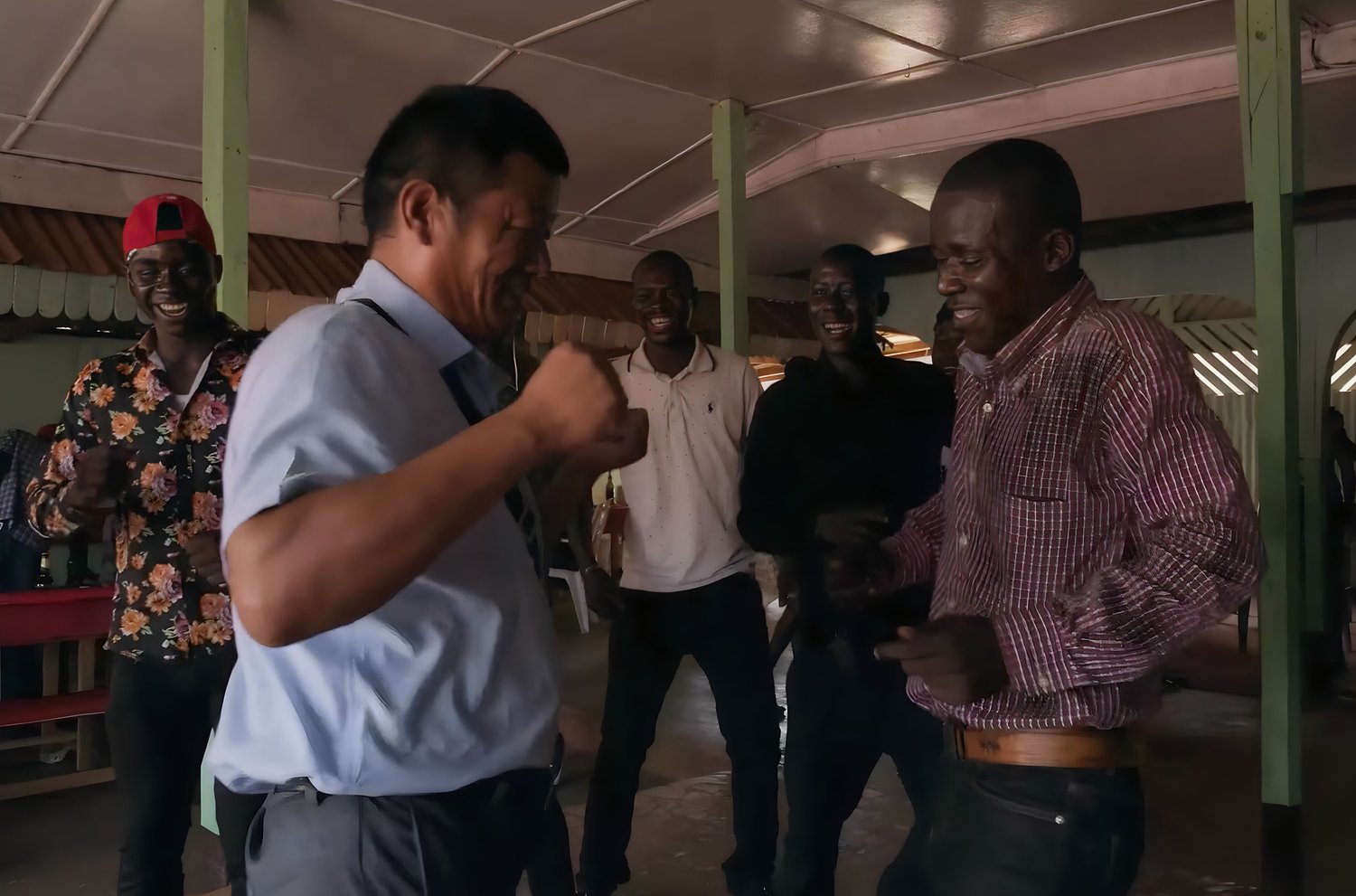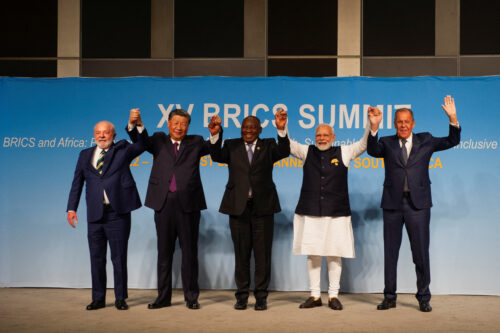‘Eat Bitter’ personalizes China’s relationship with the Central African Republic
Co-directors Sun Ningyi and Pascale Appora-Gnekindy offer a depoliticized, if at times dismissive, look into the lives of a Chinese construction manager and a Central African laborer.

Eat Bitter, a co-production between China and the Central African Republic, is the latest documentary to shed light on China-Africa relations. The film had its world premiere last month at the prestigious Copenhagen International Documentary Film Festival, better known as CPH:DOX, just one day after news broke out that nine Chinese nationals were killed during an attack on a gold mine in the Central African Republic.
However, Eat Bitter largely avoids depicting such conflicts. Instead, Sūn Níngyì 孙宁忆 and Pascale Appora-Gnekindy choose to highlight personal stories and relationships between the Chinese and Central African residents in the capital city of Bangui in their first full-length film.
“I didn’t want to discuss China’s influence in Africa, or [make] a film that focuses solely on economy or politics,” Sun, who initiated the project, explained in an interview. The resulting observational documentary focuses almost exclusively on two men who represent different sides of the China-Africa relationship but also share the same basic pursuits in life: family, wealth, and happiness.
Eat Bitter — a literal translation of the Chinese phrase 吃苦 chīkǔ, or “endure hardships” — starts with a series of strikingly beautiful shots of the Ubangui River at dawn as two locals row a canoe. One of them stands up, prays aloud, and jumps into the water. Moments later, he emerges back on the surface while his partner pulls up from the bottom of the river a bucket that he’s filled with sand, and empties it on the canoe.
Dive, dig, dump, and repeat. This is the work routine of sand laborers like Thomas who dive in deep waters to stay afloat financially. On the other end of this trade is Luan, one of some 150 Chinese construction managers in Bangui at the time, who’s buying sand for the first project he’s overseeing directly — a construction of a new bank building.
Both men, one in his 20s and the other late-40s, navigate unstable family lives. Thomas’s wife has left him and their two young children, but it’s soon revealed that the number of women and children in his life doesn’t stop at one or two. Meanwhile, Luan tries to broker peace over the phone between his wife and estranged son who are back home in China. It’s noteworthy how the verité film refrains from judgment in presenting these personal moments.
There’s an intriguing discrepancy between the trailer and the actual film. With a tense score in the background, the former suggests a much more sensational content, emphasizing conflicts between the two sides and the region’s instability. “The collaboration between the Chinese and the Central Africans is not really a win-win for us,” Thomas complains. “They are like white people and they definitely make more money than us.” A scene in which Thomas and his family hail a motorcycle cab is paired with his voiceover from another scene where he recounts a rumor that the rebels are coming and the resulting effect looks as if they’re fleeing from danger.
The actual events in the film, however, are much less dramatic and truer to the filmmakers’ intent to present a character-driven story. “We didn’t bring to the audience the expected ‘cultural collision,’” Mathieu Faure, the film’s executive producer, said in an interview. It seems that such a tactical presentation in the trailer highlights, more than anything else, the difficulty of making one’s film stand out in the ongoing documentary boom.
While the filmmaker’s choice to avoid a more orthodox angle is commendable, many important moments in the film are treated in a rather cursory manner. A scene in which Luan finds out and responds to the news that a workplace accident has resulted in the death of his employee lasts less than a minute. He simply states that he will take full responsibility, and the scene cuts to show Thomas joining and singing gaily with his new congregation.
The depiction of the precarious nature of the locals’ work seems to give way to the overall feel-good, inspirational movie (励志电影 lìzhì diànyǐng) that is Eat Bitter. Nevertheless, an interesting subtext — one that suggests there’s always a bigger fish — also emerges at the film’s conclusion. Luan’s French-speaking Chinese boss, Madame He, makes a brief and somewhat mysterious appearance toward the end of the film. In a tellingly well-framed shot, Luan and his wife drink Coke and take selfies by the river while in the background the locals are busy at work on their canoes.
“Eat bitter, then taste sweet,” Luan muses. But the film also reminds one that there’s always those who eat bitter and those who eat better.
Eat Bitter will have its North American premiere at the 47th Atlanta Film Festival on April 22 and will also be available for streaming until May 6.







